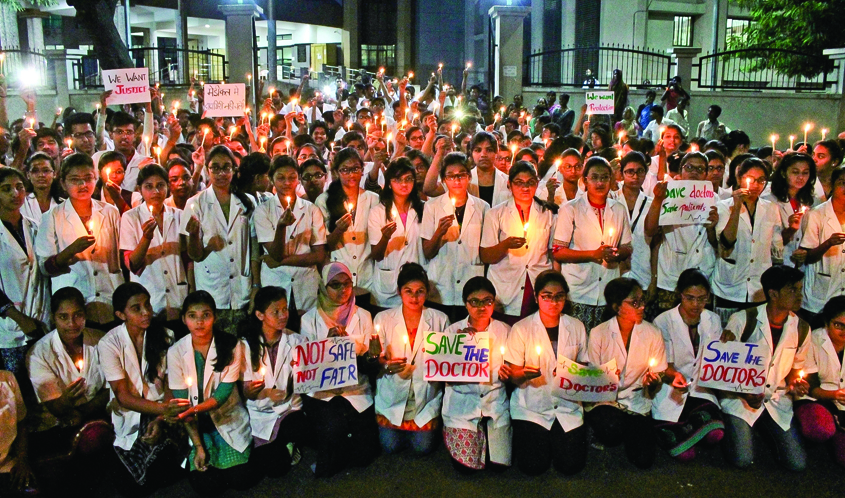The last 20 days have been turbulent in Maharashtra after over 4,000 resident doctors of public hospitals went on a strike, and many private doctors closed their OPDs in support of their colleagues. The reason was the rising attacks on doctors in the state, and the trigger was a horrid assault on a young orthopedic doctor in Dhule, which led to the loss of sight in one of his eyes. In several incidents across the state, the aggrieved relatives of severely ill or deceased patients recklessly attacked resident doctors. The Maharashtra government has deployed over 400 security personnel outside Mumbai’s public hospitals. The public hospitals in other parts of the state have not been lucky to receive such good security cover, as of now. The steps came after the intervention of the Bombay High Court and a massive strike by doctors demanding safe working environment. But what is woefully lacking is awareness among the police personnel about a seven-year-old law against assault on doctors in the state. The infrastructure in the public hospitals is inadequate, further burdening the resident doctors.
Some of the doctors who went on strike talked to The Sunday Guardian and expressed their anguish.
“Why is the government not implementing an existing law? How many police personnel know of the law against attacks on doctors?” asked Dr Shrikant Shetty, a general physician and guest lecturer in medical colleges. “There is a law. Doctors want it implemented well. It is our constitutional right to work without fear. This is a genuine demand. If there is no security, how will doctors fulfil their Hippocratic oath?” he asked.
The resident doctors, who have to serve in the public hospitals as a part of their academic years, live in trying conditions. In the past, many resident doctors have fallen ill due to the unhealthy atmosphere they are forced to live in. “Still, they did not protest or go on strike for better living conditions, for better food, or for better pay. All these are valid demands. But when they raise their voice for their security, everybody else wants to silence them,” Dr Shetty said.
The Bombay High Court had directed the doctors to resume duty immediately. The state government had warned them of dire action if they didn’t resume duties. It was due to the collective strength and unity of the doctors that the state had to implement measures for their safety.
‘The security has definitely improved a few notches. We believe that by the end of the month, things should be better. The pass system is being strictly followed at a few places on a pilot basis. By this month’s end, it should be fully functional,’ Dr Sagar Mundada of Indian Medical Association told The Sunday Guardian.
In the past seven years, 56 cases of assault against doctors have been registered in the state. Within a week after the gruesome Dhule attack, six other resident doctors were attacked in other parts of the state by the relatives of patients. “No action has been taken and the accused gets released on bail in 24 hours. Hence, we supported the resident doctors and 40 associations have come together under the banner of Doctors Medical Security Forum that went on a statewide strike,” Dr Dilip Sarda of Maharashtra Medical Council told a newspaper here.
“Even today, there are certain hospitals where the pass system has still not been put in place. In some hospitals in Mumbai, security guards have been deployed. But places outside Mumbai are not as lucky. We believe that the pass system has to be followed quite rigorously. If you limit the people entering the hospitals, it will reduce the infection in the premises. It will also bring down the number of assaults, by default,” Dr Sagar Mundada of Indian Medical Association told The Sunday Guardian.
“The security has definitely improved a few notches. We believe that by the end of the month, things should be better. The pass system is being strictly followed at a few places on a pilot basis. By this month’s end, it should be fully functional,” he said.
When asked about the implementation of Doctors’ Protection Act, 2010, he said, “The Chief Minister has promised us two things: one is the strict implementation of the law, and the second is the sensitisation of the police in this matter. Minister Ranjit Patil has assured the same. Regarding the provisions of the Act, we believe that the law should be made more stringent. We have requested the CM to increase the duration of punishment for the offenders from three years to seven years. The government has said it is considering it,” he said.

